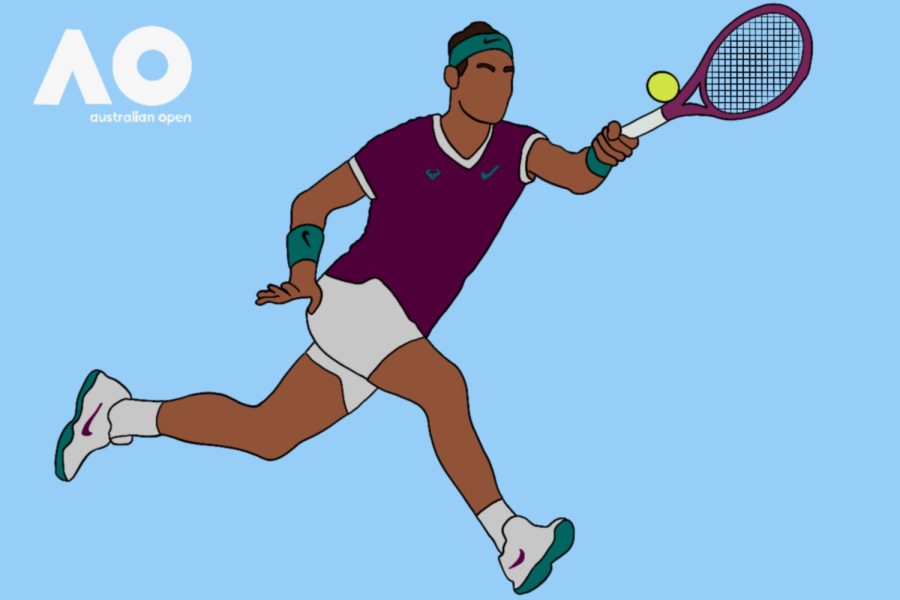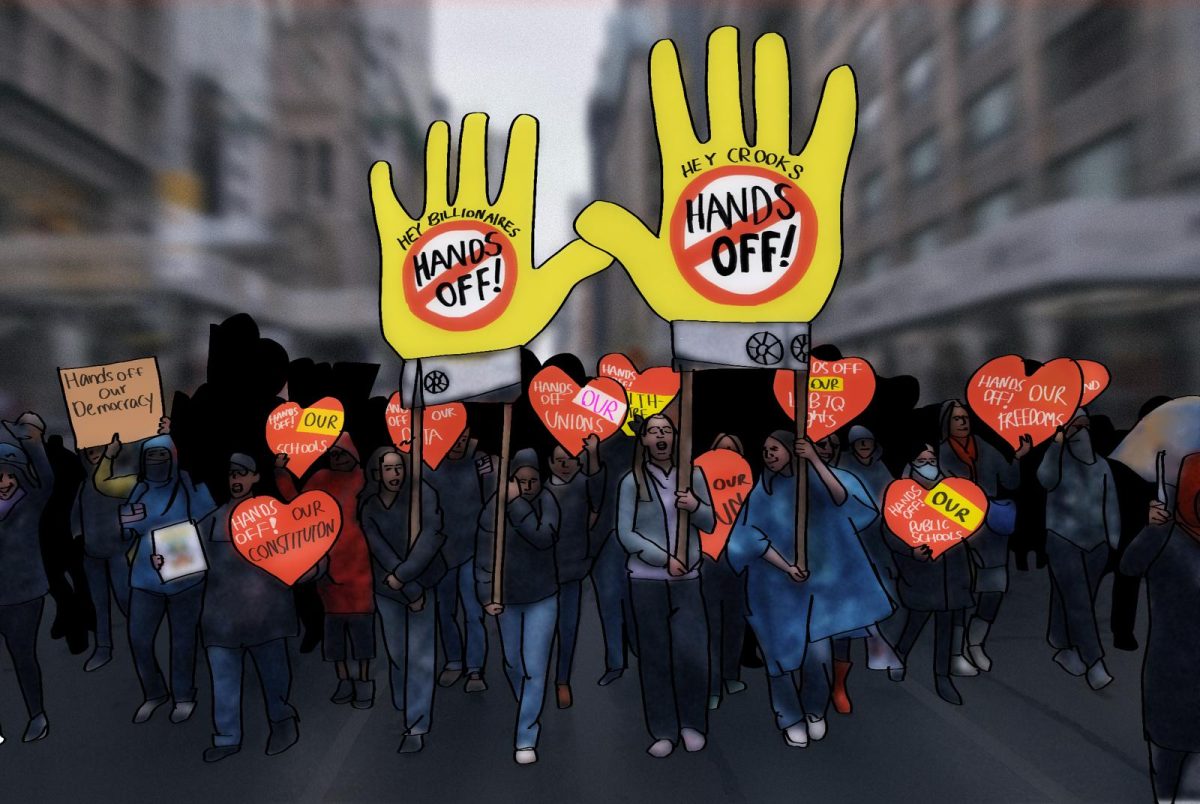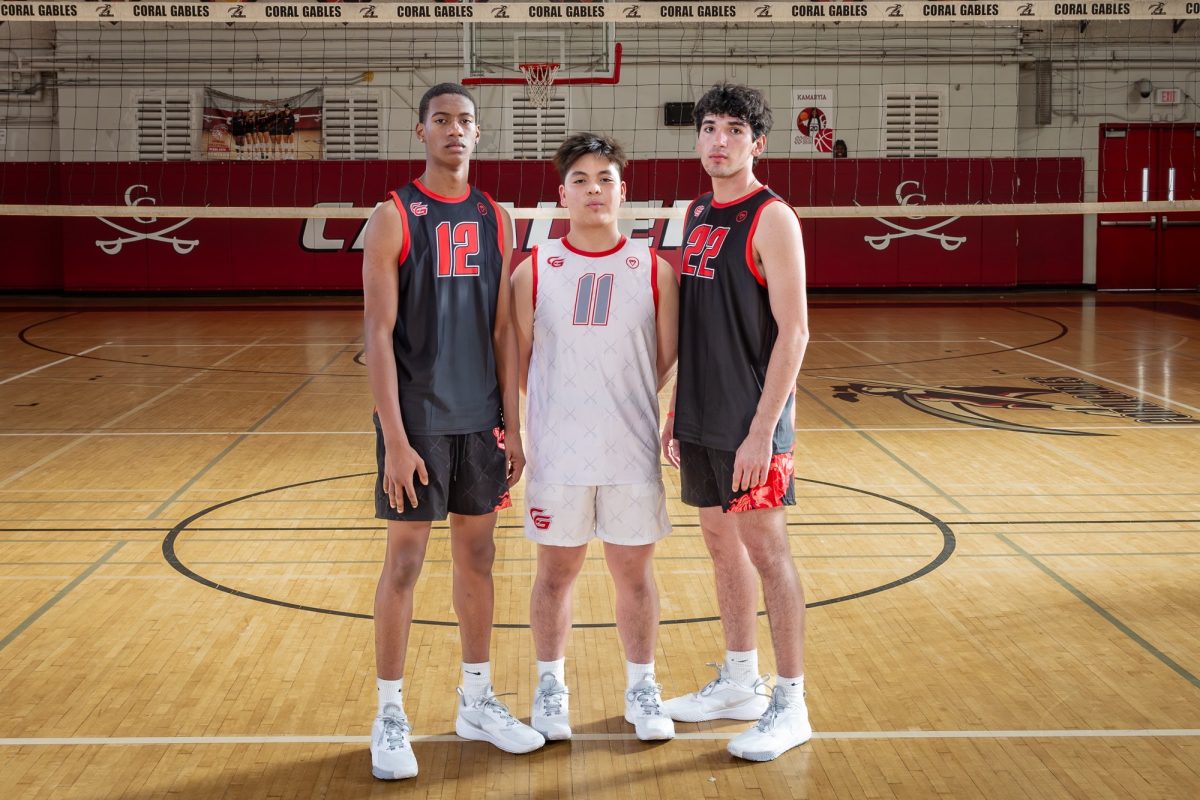2022 Australian Open: Winners Rafael Nadal and Ashleigh Barty Make History
Rafael Nadal and Ashleigh Barty both had record-breaking performances at this year’s Australian Open.
Feb 16, 2022
In hopes of winning one of the most prestigious tournaments the sport has to offer, over the past two weeks tennis’ most accomplished athletes played many hard-fought matches at the Australian Open.
Located in Melbourne, Australia, the tournament is one of four events known as the Grand Slams which also include the French Open, Wimbledon and the U.S Open. These tournaments are considered the most difficult championships to win in tennis and feature a large number of fans in attendance, large cash prizes and high stakes. Winning one of these events allows a professional to rise significantly in the international ranks and receive high-profile endorsements.
The weeks preceding the event were steeped in controversy due to world champion Novak Djokovic’s decision to opt out of the COVID-19 vaccine. Though the Australian government’s COVID-19 policy is that unvaccinated athletes cannot participate in the event, Djokovic was secured a medical exemption by tournament officials that was eventually overruled by the government. Thus, Djokovic was deported and told that he could not play.I think the amount of Grand Slam titles won has to be the deciding factor for which of the Big Three is the greatest of all time considering that there is little else to distinguish between them. For this reason, I consider Nadal the greatest player ever as of right now,
Despite this situation, fans and players still had many matches to experience at this year’s tournament. On the men’s side, current world no. 6 Rafael Nadal beat second seed Daniil Medvedev in a five-set, five hour and 30 minute match. It was widely believed that it would be impossible for the 35-year old Nadal to win the tournament due to his battle with a chronic foot injury that nearly forced him to retire in 2021. This prediction appeared to be accurate as the final began; the second seed Medvedev won the first set 6-2, and won the second set in a close tiebreak.
Nevertheless, Nadal’s consistent groundstrokes ultimately won him the match. Nadal is now the only man in tennis history to win 21 Grand Slam titles; his closest rivals, Djokovic and Roger Federer currently stand at 20. These three players are widely considered to be the greatest of all time; fans and commentators regard the amount of Grand Slam titles won by each to be an important factor in the discussion of which among the three is the best player.
“I was not surprised that Nadal made the final but I wasn’t convinced that he would be able to win the title because of his age and the fact that it’s his weakest Grand Slam. It turns out that he had more than Medvedev could handle, which is a testament to his amazing drive,” sophomore Lenox Balzebre said.
The women’s side of the tournament also had its fair share of fanfare due to world no. 1 and Australian native Ashleigh Barty’s championship win. Barty went through the tournament without dropping a set, disposing of her opponents through her all-court game. Indeed, her serve was broken by an opponent on only a handful of occasions. Her opponent in the final was the American 27th seed Danielle Collins, a University of Virginia graduate who is known for her drive and aggressive backhand. Barty won the first set of the final 6-3, but Collins took the lead in the second set, leading by five games to one before Barty came back to win the tiebreaker. Collins is now the top American player in the world, ranking in the top ten.
“It doesn’t happen often that college champs make it to the pro rankings, especially top 5, because a lot of times they don’t have support systems, sponsors or the ability to live and breathe tennis 24/7. That makes what Collins did in this tournament all the more admirable and it’s evident that something has really clicked with her game,” sophomore Lenox Balzebre said.
As for Barty, she is adding a third Grand Slam championship win to her resume, and is now also the first Australian woman to win the title since 1978. Representing many indigenous Australians, Barty was presented her trophy by Evonne Goolagong-Cawley, a former player who is also of Aborigine descent.












